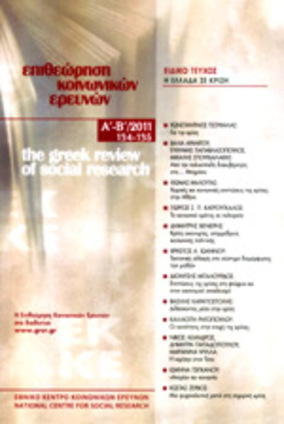Further research on the cross-cultural application of cognitive consistency theory
Part of : Επιθεώρηση κοινωνικών ερευνών ; Vol.41, 1981, pages 45-50
Issue:
Pages:
45-50
Section Title:
Articles
Author:
Abstract:
An experiment was conducted to test the notion that cognitiveconsistency is not a universal attribute, but is contingent uponsuch variables as cultural group, age, sex of subject, and the issueunder consideration. In a 2 x 2 x 3 x 3 x 2 factorial design,North American and Cypriot subjects were given questionnaireswhich measured attitudes on three issues before and after the introductionof a discrepant cognition. Subjects differed in evidencingcognitive consistency, or discrepancy-induced attidude change,with age and type of issue interacting with the cultural group. Thesex of subjects also mediated the consistency effect, but yielded nosignificant interaction with the cultural group. The implications ofthe results for cognitive consistency theory were discussed. Findingsreplicate data presented in earlier studies with Greek andAmerican populations reported in The International Journal ofPsychology, The Greek Review of Social Research, and elsewhereby the same authors.
Subject:
Subject (LC):




